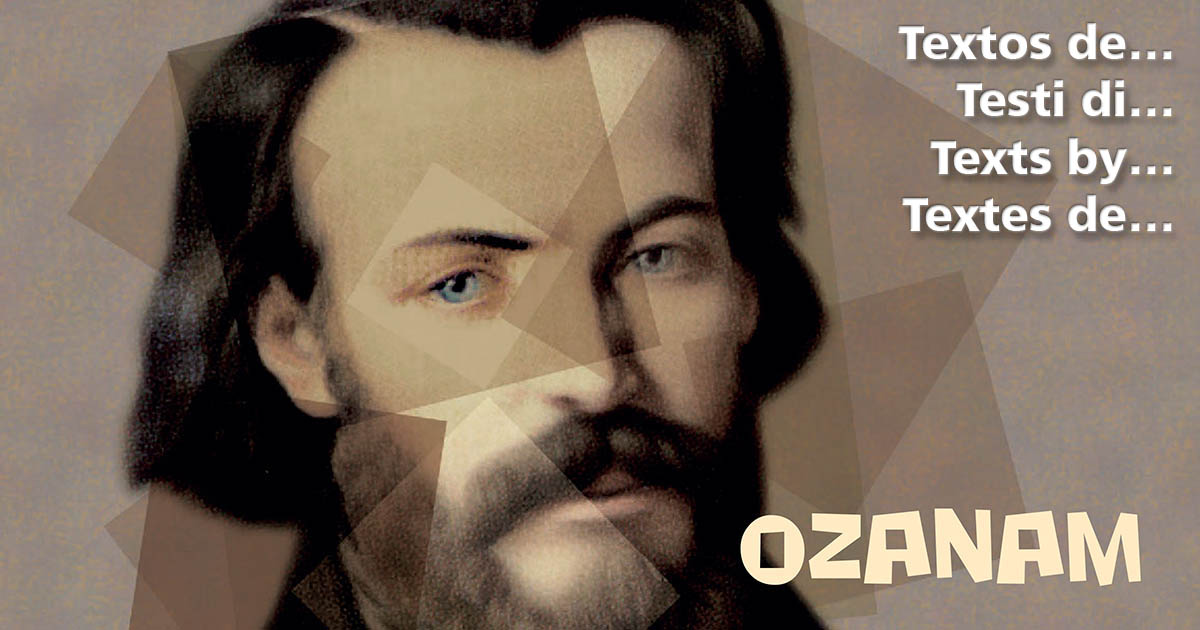Commentary:
Many times, when we walk the life of Frederic and the historical moment that he had to live, we cannot avoid making analogies with present times. Undoubtedly, they were different times in many aspects, but also with some points of encounter. And this, of which Frederic speaks, can be one of them. Frederic complains that (in his time) the intentions were good, but they rarely came to materialize into something practical and concrete; and, still less, that they had some temporal continuity (“perseverance”).
In our times we live complex situations, at multiple levels: the problems accumulate without us seeing evidence that sound steps are being taking to solve them. So:
- There is much talk of a mediocre and corrupt ruling class (“politicians”). But … what effective steps are being taken to solve this?
- We are all speaking about the protection of the environment, our global village, the dangers of deforestation, the climate change, the pollution of our atmosphere and seas. But…the multinational agreements, the Kyoto Protocol of 1997, the Paris agreement of 2015, the declaration of the UN Conference on Climate Change in Madrid in December 2019, among others. Steps are being taken, perhaps still small. There is no doubt that, in this regard, much remains to be done.
- We know that the end of hunger in the world is in our hands, if those who have the power to do so would take it seriously. It is a fact that we produce more than enough food to satisfy the whole planet, but the unfair distribution of production and consumption resources condemn to hunger one in six human beings:
“During the last 12 years, the Development Objective Millennium Development Goals (MDGs) to halve hunger by 2015 has been the main motto of hunger reduction. The proportion of hungry people in developing countries has dropped significantly from 23.2% in 1990-92 to 14.9% nowadays. But the decline is due more to an increase in the world population than to a slight reduction in the actual number of hungry people, from approximately 980 million to 852 million today”[1].
Lack of work and job insecurity are problems of the highest order in the world. We all recognize it. But…what initiatives are given that prioritize the personal dignity and the right to work recognized in the Universal Declaration of Human Rights of 1948, article 23:
Everyone has the right to work, to free choice of employment, to just and favorable conditions of work and to protection against unemployment. Everyone, without any discrimination, has the right to equal pay for equal work. Everyone who works has the right to just and favorable remuneration ensuring for himself and his family an existence worthy of human dignity, and supplemented, if necessary, by other means of social protection. Everyone has the right to form and to join trade unions for the protection of his interests.”
The words of this Declaration, are they an expression of what is occurring in our midst?
Frederic continues in his text: he sees many right intelligences and wills, but few people of character, few people with enough charisma to make a difference and take a turn to the situation. Is it not so in our times?
Ozanam tells us that the gift of the Holy Spirit of Fortitude is missing (then, and probably also now). Fortitude is the virtue that assures us against the fear of the difficulties, dangers and works that are presented in the execution of our projects, a provision that the Holy Spirit puts in the soul and in the body to accept suffer, to undertake the most difficult works, to expose ourselves to the most dreadful dangers and to endure the most rude works and the most bitter pains. And all this with constancy.
Suggestions for personal reflection and group discussion:
- What other good intentions that do not materialize could we add to those already mentioned in the reflection?
- How do we live, personally and in community, this need of the spirit of Fortitude? Do we ask God to give us courage to face the difficult situations that will inevitably appear when we stand on the side of the oppressed?
- In the face of conflict, how do we react, individually and as a community? What can we do to change the unjust situations?
Footnote:
[1] Cf. José Graziano da Silva, El fin del hambre y la desnutrición [The end of hunger and malnutrition], in https://goo.gl/kXLeWJ. Today, according to the United Nations Commission for Food and Agriculture, that number still remains high: a total of 821.6 million people experience hunger (data from July 2019).
Javier F. Chento
![]() @javierchento
@javierchento
![]() JavierChento
JavierChento






0 Comments